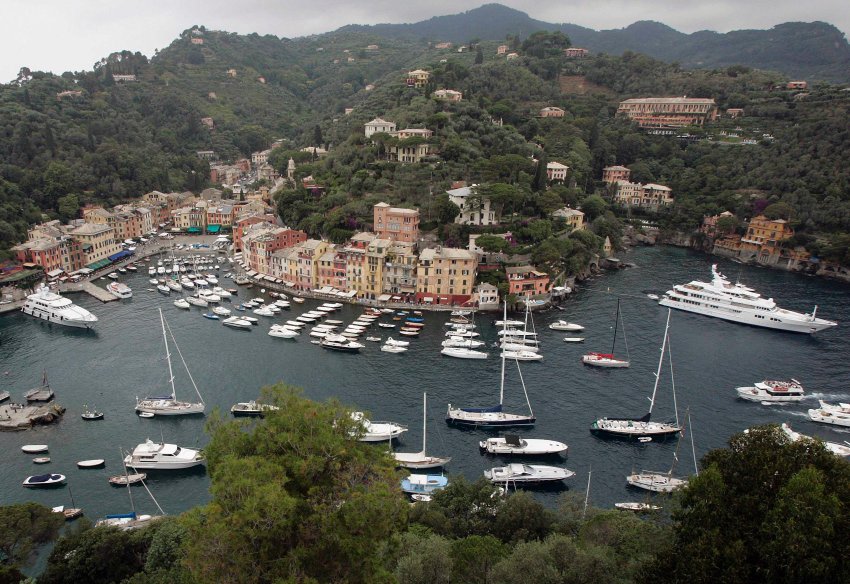The super-rich lost a great deal in 2009, with hundreds of unfortunates losing their billionaire status. A Swiss private banker talks about the ugly consequences of the crisis for his elite clientele and the discreet services he is sometimes asked to perform, such as buying secret apartments for clients’ mistresses.
When he speaks, Heinrich Weber sounds like a psychotherapist. But his profession involves addressing the worries of people who might normally be considered to have little to worry about. It’s an area that Weber, 46, knows well. He has heard plenty of tales of woe from his super-rich clients.
“Those who were born rich have seen the dark side of wealth,” says Weber, who is wearing a gold watch, a pinstriped suit and a pocket square, as he talks about his everyday life as a Swiss private banker. He isn’t being ironic.
Adjustment
Since the collapse of US investment bank Lehman Brothers, the clients in Weber’s world are faced with another painful reality. They are losing money — a lot of money. According to the US business magazine Forbes, the present net worth of the world’s billionaires shrank from $4.4 trillion (€3.1 trillion) to $2.4 trillion during the financial crisis. And the number of dollar billionaires worldwide declined from 1,125 before the recession to only 793 in March 2009.
Some of these prominent former members of the billionaires’ club lost part of their money in Germany. US investor Christopher Flowers, for example, had to say goodbye to his billionaire status as a result of his stake in the now-nationalized German mortgage lender Hypo Real Estate. Madeleine Schickedanz, a major shareholder in the now-insolvent trading company Arcandor, lost much of her fortune. German businessman Adolf Merckle even committed suicide when his empire threatened to collapse.
Financial consultants like Heinrich Weber are very busy these days, even though his line of work is so discreet that he doesn’t even want the exclusive Swiss private bank for which he works mentioned by name.
Weber uses a quote from Goethe to describe the way he goes about his business: “Whoever wishes to keep a secret must hide the fact that he possesses one.”
And there are still plenty of secrets to go around, with about 20,000 UHNWIs living in the world today, more than a quarter of them in the United States. Germany, say experts, is home to an impressive 1,150 UHNWIs. What they all have in common are personal assets of at least $50 million. For some time now, discreet crisis management has been in demand in their milieu. “We work like a coach who asks the right questions,” says Weber.
Family-owned companies, in particular, “have faced difficulties,” he says, adding that many are deeply in debt. “For instance, I am urgently seeking a buyer for an enormous art collection,” says Weber, who only shows limited pity for his clientele.
There is a reason for his relative lack of compassion. Those affected by the financial downturn generally do not need to change anything about their lifestyle, as selling their villas or luxury cars would simply not bring in enough money, and the running costs represent a negligible share of their total income. And, of course, they can still afford to pay for the services of someone like Weber, even though the traditional culture of banking secrecy in his native Switzerland is gradually crumbling.
Definition of Rich
According to Weber, greed or glamour are no longer the relevant factors among the top few thousand members of the world’s moneyed aristocracy. “It’s really a matter of ambition, of the need to show everyone that you were right about the execution of an unconventional idea,” says Weber, although he himself knows very well that this only half the truth.
There is often little difference between multimillionaires and small investors in terms of their desire to make money. For instance, many were only too willing to place their cash in the hands of Bernard Madoff, the American swindler of the century, who was sentenced last year to a record 150-year prison term.
Hardly anyone was suspicious about the uncanny regularity of Madoff’s annual returns. Even the Geneva-based private bank UBP gave its seal of approval to Madoff’s supposed money-making machine.
For most multimillionaires, says Weber, emotion plays no role in their investments. Nevertheless, some of these eminently reasonable people are susceptible to the kinds of small gestures that private bankers use to promote good business relations, such as invitations to go sailing with an America’s Cup team or to be chauffeured to the Formula One race in Monaco in a Rolls-Royce — even at the risk of “getting stuck in traffic for hours and missing the race,”
However he doesn’t like to talk about such services, or somewhat more discreet favors. Inebriated clients have been known to call him in the middle of the night or to invite him to a cocktail party so that he can later give them his opinion of their daughter’s new boyfriend.
One of the more delicate services Weber is sometimes asked to perform is to purchase an apartment in Paris, London or Rome for the mistress of one of his super-rich clients. This often leads to “very tense discussions” years later, he says, when the will of the now-deceased client is opened.



